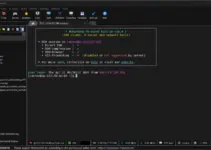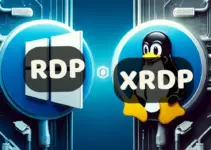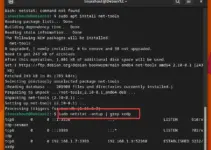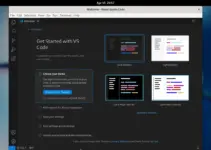Most popular cloud service providers offer a free plan to let users experience their service before paying for it. On the cloud server, you can install the popular Linux OS of your choice, including Ubuntu, a widely used server distro. Hence, before locking yourself in a long-term contract to host your application with Ubuntu Cloud service providers, you must check out their interface and performance. In this article, we will list some popular and cost-effective cloud solutions, so that you can make decisions easily.
What are Free Ubuntu Cloud Servers?
Free Ubuntu cloud servers are virtual server environments offered by different service providers either free of cost or for a limited time on a trial basis. Such options are useful for students, small projects, or startups who want limited cloud computing resources.
Popular Free Ubuntu Cloud Server Options
1. Oracle Cloud
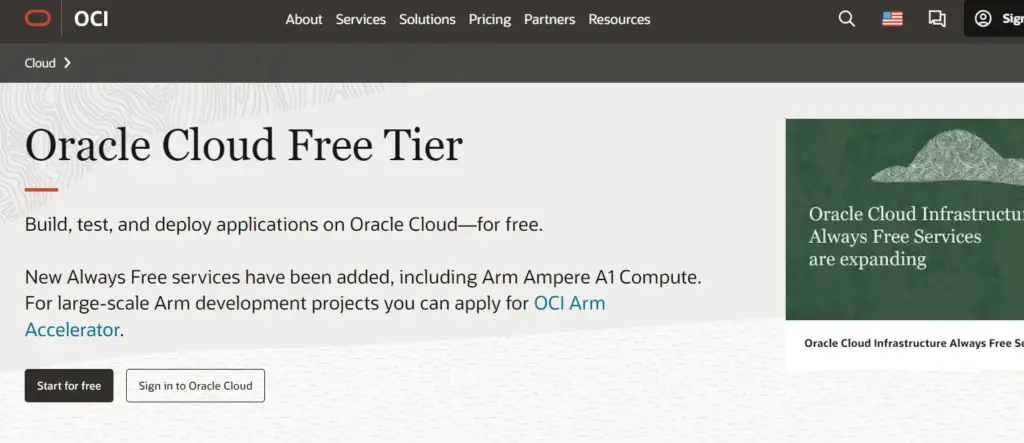
Oracle Cloud Free Tier is a trustworthy platform that offers “Always free” computing resources to run Ubuntu, Windows, or any other Linux OS. Even though there are restrictions on the Free resources, however, still whatever Oracle offers is quite feasible such as 2 AMD-based VM instances with 1/8 OCPU and 1 GB memory per instance; 20 GB of storage; Autonomous Databases (ADB); two block volumes of 100 GB total (50 GB each); load balancer with 1 instance and 10 Mbps bandwidth; 10 TB per month of outbound data transfer and more…
Apart from the Always Free Resources, Oracle Cloud service gives its new users $300 credit to let them experience a wide range of Oracle products including Databases, Analytics, Compute, and Container engines for Kubernetes, however, this credit is valid for 30 days only. Also don’t forget to monitor your resource usage to ensure you stay within the free limits. If you exceed the free tier limits or the trial period ends, you need to upgrade to a paid account to avoid service interruptions. Learn more about those free tier services.
2. Amazon Web Services (AWS) Free Tier
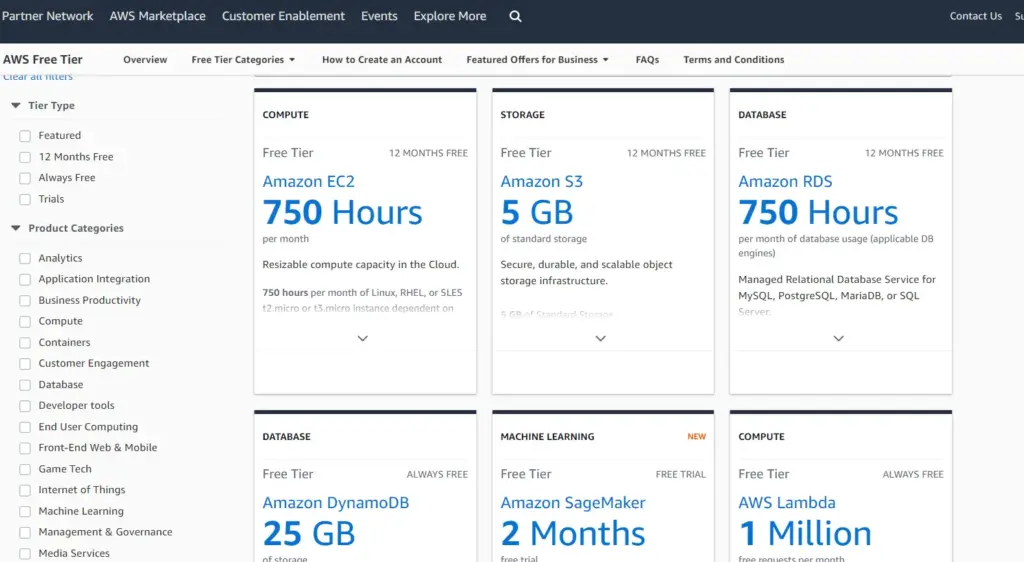
The other popular name to have the free Ubuntu Cloud Server for installing your application is AWS, a cloud computing service by Amazon. If you are a hobbyist or want to learn how Ubuntu works on the cloud for your application before going public, the AWS free tier will help you a lot. It also allows users to have hands-on experience with AWS products without paying any cost.
The free-to-use services are available for 12 months i.e. one year of long period, which is enough to test your application and learn how to handle AWS services. However, the free services also come with some limitations of resource usage, exceeding that the user needs to simply pay for the extra usage. For example, 750 Hours of t2.micro or t3.micro instance will have 5 GB of Standard Storage exceeding this limit of storage, the user will need to pay for that.
You check out the Free Tiar Info page of AWS to see what are the available services. Also, a user must need to have a credit card to avail of the free service of AWS and other cloud service providers we have listed in this article. The popular AWS Free Tier Services are Amazon EC2 (Elastic Compute Cloud), Amazon S3 (Simple Storage Service), Amazon RDS (Relational Database Service) and AWS Lambda.
3. Azure Free Tier
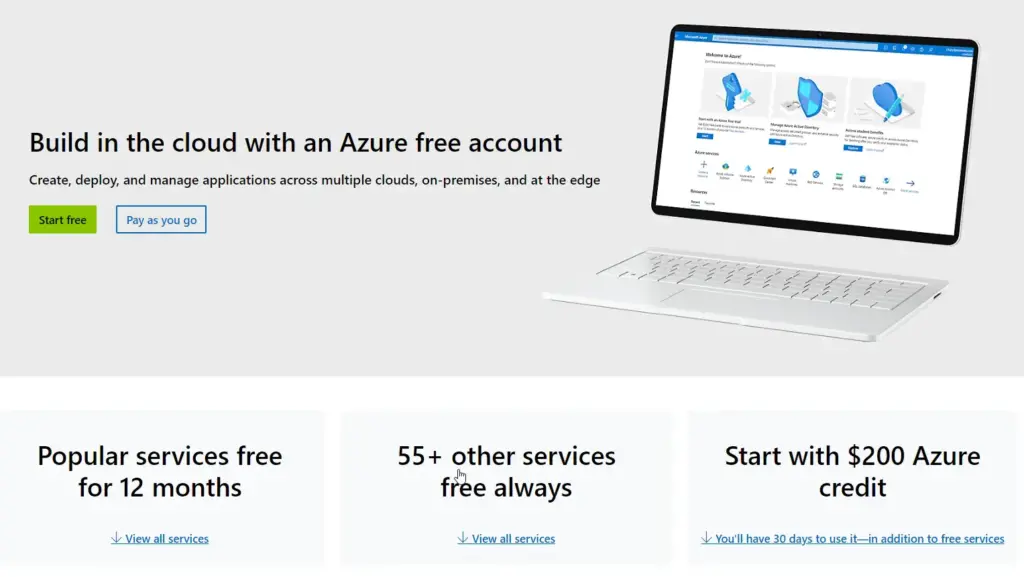
The third free-tier cloud server option to run Ubuntu Linux is Microsoft Azure. After signing up for Azure, a user will get a $200 credit to experience Azure Functions, Azure Logic Apps, and Azure DevOps for 30 days. However, apart from that, just like AWS, Azure also offers 55+ always free services such as Azure Virtual Machines, Azure Kubernetes Service (AKS), and Azure Synapse Analytics, some of them like Azure Virtual Machines and Blob Storage are eligible to use 12 months like AWS while others are always free with limitations.
Popular Azure Always Free Services are Azure App Service, Azure Functions, Azure Active Directory, Azure DevOps, and Azure Cosmos DB. Therefore, for beginners and advanced users with a credit card, Azure computing service is one of the best to start using Ubuntu on the cloud. Learn more from the official page.
4. Google Cloud Free Tier
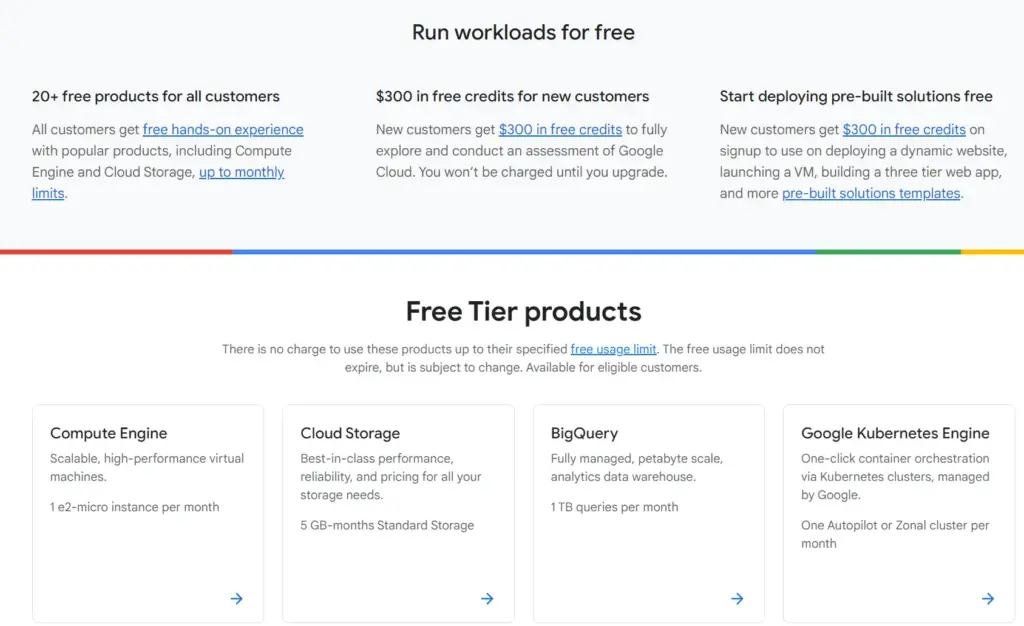
The Google Cloud Free Tier will help new users run Ubuntu on the Google Cloud Platform without committing financially initially. The free tier is divided into two parts one is a 90-day trial with a credit of $300 to experience all Google Cloud services. This credit is for new users after signing up for the platform to spend but within 90 days because after that, the unused credit will not carry forward. However, apart from this, there is also an “Always free Tier” option that gives access to Google services at no cost but with a limited amount of resource usage. Also, Learn how to use the Google Cloud pricing calculator to find out how much its services cost.
For example, the App Engine of GCP is limited to 28 hours per day of “F” instances, and 9 hours per day of “B” instances, with 1 GB of outbound data transfer per day. Whereas, the Compute Engine free tier offers 1 non-preemptible e2-micro VM instance per month; 30 GB-months standard persistent disk, and 1 GB of outbound data transfer per month. However, don’t forget to monitor your usage because extending the free limits will be chargeable. Nevertheless, for starters, the free resources of Google Cloud can be an option to experience Ubuntu and other Linux systems. Get detailed info on the GCP free Tier.
5. Alibaba Cloud
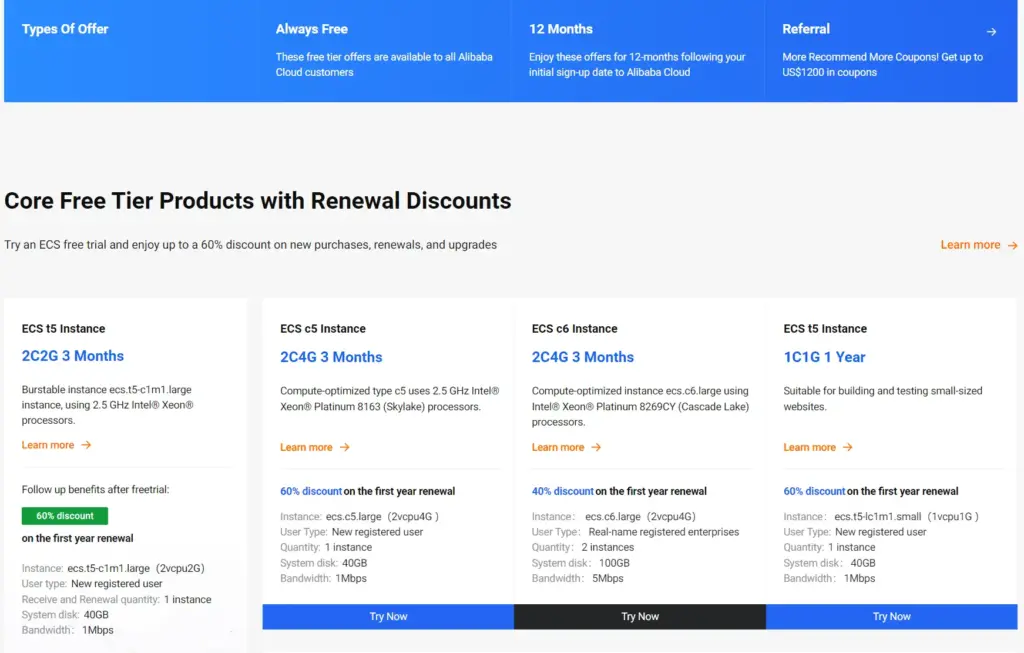
Similar to other popular cloud platforms to run Ubuntu and other Linux servers, Alibaba Cloud also offers a Free Trial program to allow its new users to try the various Alibaba Cloud services without paying any initial cost.
On the Alibaba platform, the users will have two types of offers like we already have seen above in other services – one is Always Free and the other is 12 months that comprise free usage but for a limited period i.e one year, both together provides the access of more than 40 products and up to 16 categories. The ECS t5 Instance of Alibaba in the free tier is available for 12 months similarly ECS c6 & c5 Instances are for 3 months.
Types of services Free Trial Offers Elastic Compute Service (ECS), Database Services, Big Data and AI Services, Networking Services, Storage, and CDN.
Know more about the Alibaba Free services from the official page.
6. IBM Cloud free tier
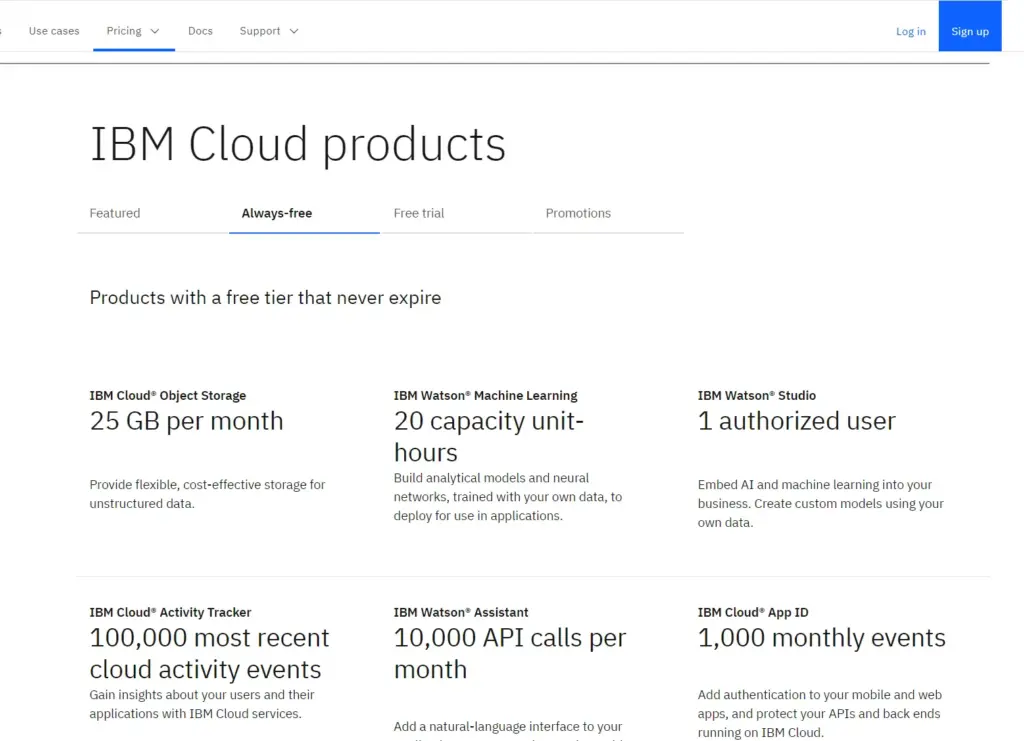
IBM Cloud is not different when it comes to its free tier, it also offers an “Always free” plan known as an IBM Cloud Lite account and a Free Tier plan with $200 credit to let users try any premium service.
The Lite account gives access to more than 38 services in various categories such as AI, databases, IoT, blockchain, and more. It is designed for learning, building prototypes, and developing applications because of the limitations in terms of resources we cannot use it for commercial purposes unless your project is not resource demanding. Check out the IBM web page to know more…
Limitations of Free Ubuntu Cloud Servers
Free Cloud server platforms for running Ubuntu Linux sounds quite interesting and valuable but there are always limitations and restrictions the users have to face. So, before opting for free services for your project keep the below points in your mind.
Resource Constraints: Free Cloud servers are always limited in terms of CPU power, Memory, and storage space, therefore if you are planning to run demanding applications on them then there will always be a performance issue.
Time Restrictions: Although there are few Cloud service providers such as Oracle and others that offer Always free services, however, most of the Free servers often come with a time limit of a year. Hence, your free Ubuntu cloud-running server will not always be free and eventually, you have to pay either to upgrade your plan or use extra resources.
Limited Bandwidth and Data Transfer: Even though the limited amount of computing resources is enough for your project, there are also bandwidth limits. Hence, if your website or application is remotely accessed quite often then ultimately it will affect the speed and data transfer capabilities.
No High Availability or Redundancy: Free cloud services usually lack redundancy, meaning there’s a higher risk of downtime compared to paid services.
Limited Support and SLAs: Also, when we are on free cloud server options to run Ubuntu or any other Linux then limited or no customer support and lack of Service Level Agreements (SLAs) could be an issue, especially, if a small business is planning to use them.
Conclusion:
Free Ubuntu cloud server options are good for learning or working on small-scale development projects. But as we know these servers come with resource limitations, therefore, make sure they suit your project’s requirements before start using anyone of them. For more robust, scalable, and secure cloud solutions, opting for premium services is always recommended.
Other Articles:


